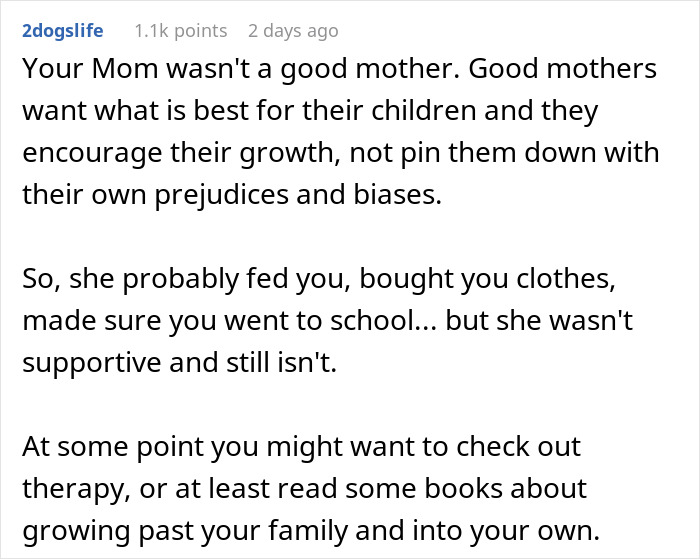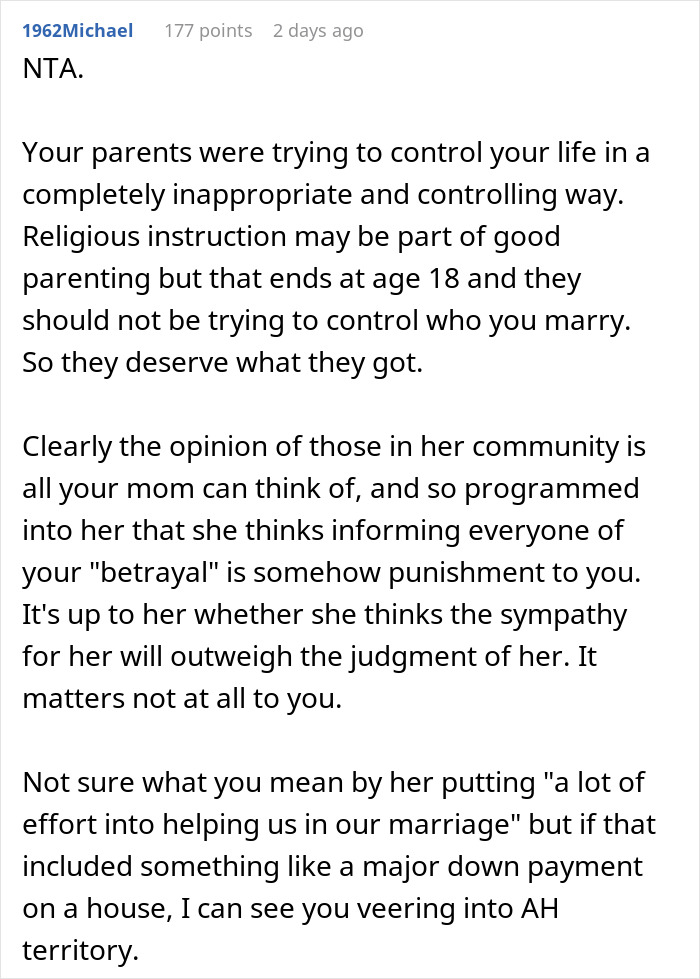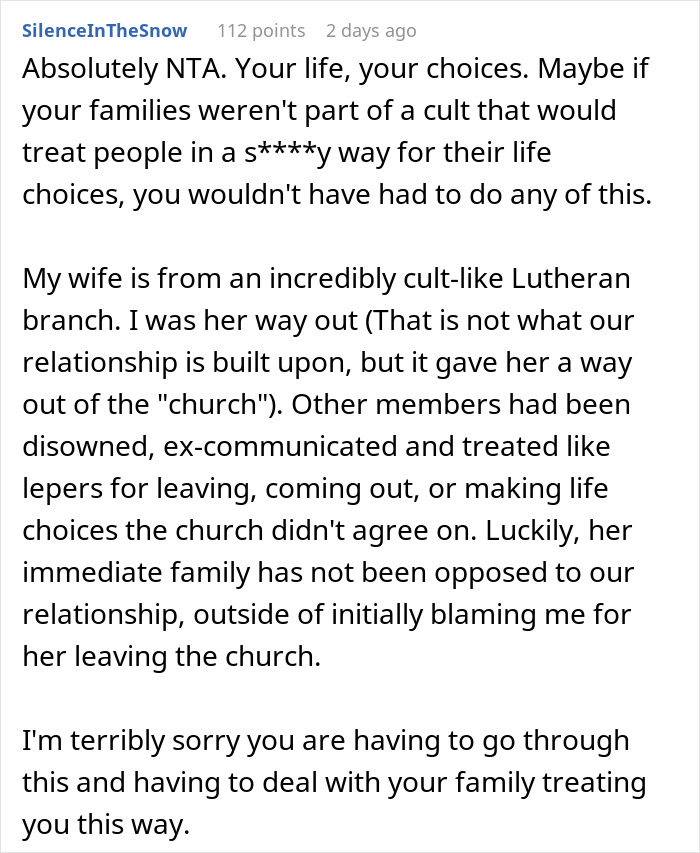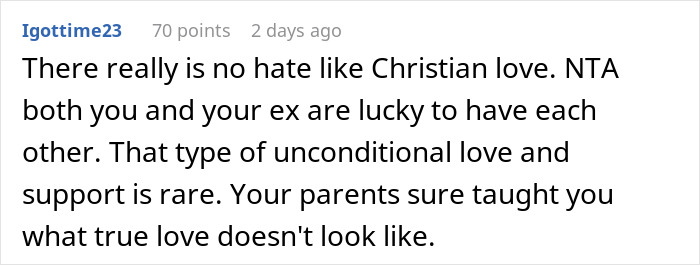The first reason that comes to mind why people marry is love. However, the reality is sometimes far from that. Some couples ‘tie the knot’ because of legal or financial benefits, societal pressures, religious traditions, or overall security and stability.
For redditor Proud_Pay_2128, love was also completely out of the marriage equation. She and her childhood friend decided to use it as a cover-up to leave their religious community. 4 years later, they revealed the secret, which stirred up some heated opinions.
Scroll down to find the full story and a conversation with its author, as well as Dr. Stephanie Bloodworth, PsyD, LMFT, a licensed marriage and family therapist, who kindly agreed to tell us more about marriages of convenience.
Not all people who marry do so because they love each other

Image credits: cottonbro studio / Pexels (not the actual photo)
These two friends decided to marry as a cover-up for leaving their religious community
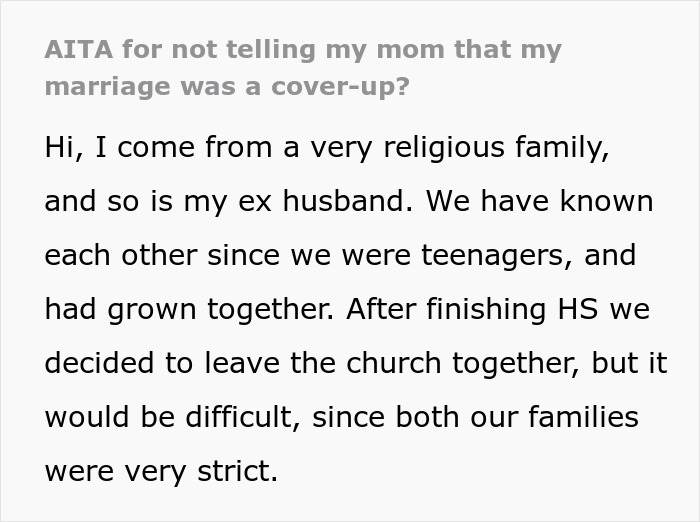


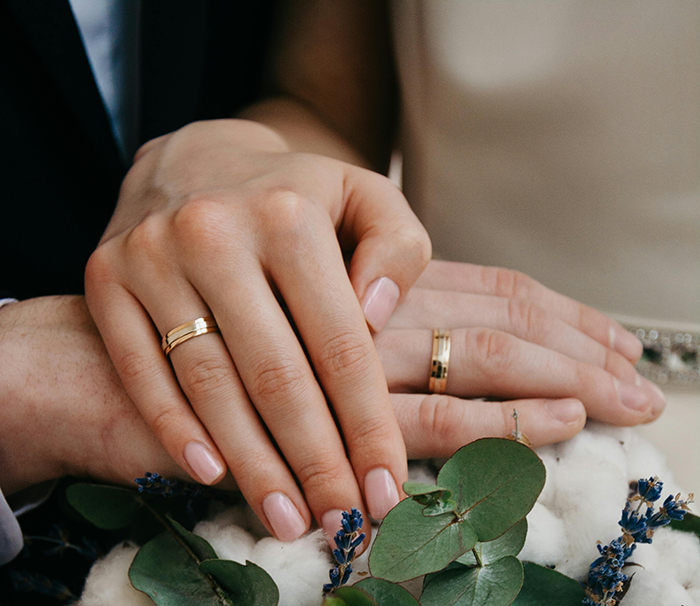
Image credits: Irina Iriser / Pexels (not the actual photo)
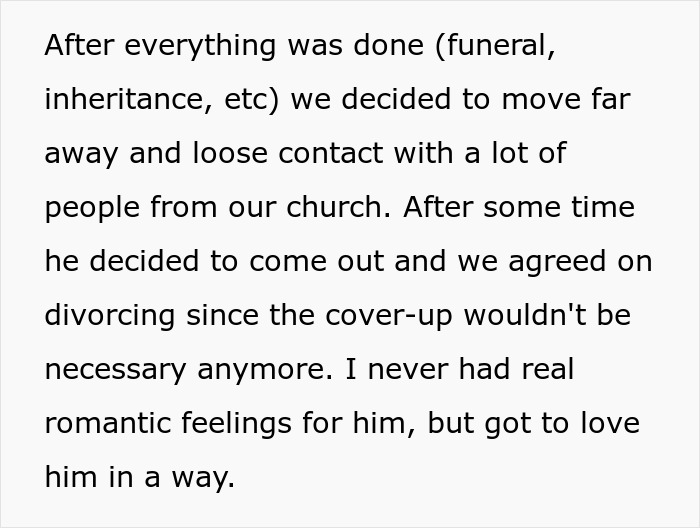
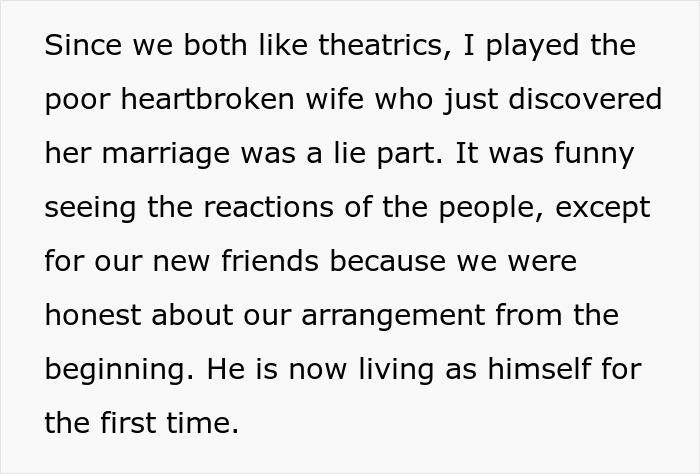




Image source: Proud_Pay_2128

Image credits: Liza Summer / Pexels (not the actual photo)
Bored Panda was lucky enough to get in touch with the original poster of this story, who kindly agreed to answer a few questions in anonymity. When asked what inspired her to share it online, she told us that she wanted to get some insights and advice from other people and move on, “I wasn’t expecting it to get so big.”
Even though their marriage with her ex-husband was out of convenience, she wasn’t missing anything in such a union. “My ex-husband and I really helped each other, and we were free to fulfill our sentimental or sexual needs with other people. It was funny for him to use the “married card” to get dates. He got way more dates than me, and now I’m not interested in dating, but it was so fun.”
When it comes to her family, she thinks going without contact would be the best option for her. “I’m a bit scared, but my ex-husband is helping me protect myself right now. I really don’t care about anybody back home. I have always been a black sheep anyway.”
Looking back she doesn’t have any regrets using her marriage as a cover-up and leaving their religious community. “Our marriage was perfect compared to so many others. We never argued, never got mad at each other, we helped each other out.
I kinda wish things were different so we could have real romantic feelings, but I think not having that made it work so well. We even celebrated our divorce together. I still love my ex-husband in a way, and I love to have him and his boyfriend in my life. I just think I can’t top that, so I’m not interested in dating or marriage. But overall, besides my stress and my scary situation, I’m happy with my life,” she fondly shared.
“In many lavender marriages, the partners share a profound bond of friendship, camaraderie, and mutual respect”
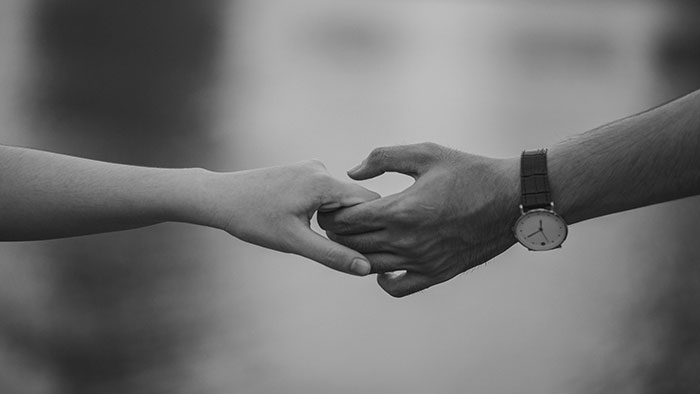
Image credits: Min An / Pexels (not the actual photo)
The original poster’s union with her gay friend falls under the term lavender marriage. It’s an alliance of convenience to hide the sexual orientation of one or both spouses. The phrase appeared around 1895 in the British press, when the color lavender was associated with homosexuality.
In the early 20th century, quite a few public figures used such marriages to conceal their real sexual orientation so they would be able to pursue a career, notably in the Hollywood industry. But even though the LGBTQ+ community has received growing acceptance, these alliances continue to exist for various personal reasons.
“In many lavender marriages, the partners share a profound bond of friendship, camaraderie, and mutual respect,” explains relationship counselor Paula Thompson. “They often enter into these unions knowing fully well the emotional implications and challenges they are likely to face. This understanding can foster deep emotional intimacy, albeit non-romantic, and mutual support between the partners.”
That said, these unions aren’t without their challenges. Suppressing one’s true identity and living a dual life can lead to feelings of isolation, sadness, and frustration. Individuals who deceive their family and society at large may also experience guilt. Meanwhile, a platonic relationship can deprive individuals of the joy and fulfillment of a romantic bond.
Not everyone seeks fireworks or grand gestures in a relationship
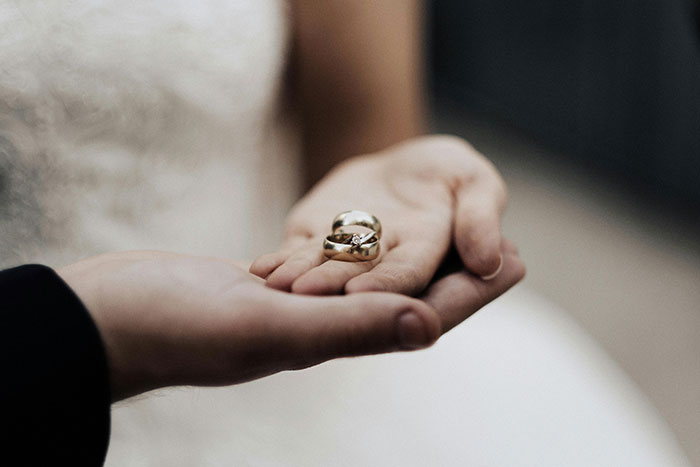
Image credits: Doğukan Benli / Pexels (not the actual photo)
Even though marriages of convenience might seem like the opposite of a happy union, not everyone seeks fireworks or grand gestures. “A marriage of convenience is entirely about the benefit the connection brings, whether it’s to the couple, their families, or a larger cultural structure,” says Dr. Stephanie Bloodworth, PsyD, LMFT, a licensed marriage and family therapist to Bored Panda.
“Marriages of convenience can include political alliances and strategic business partnerships, as well as people marrying for healthcare coverage or to provide a heteronormative social front for gender and sexual minorities. Marriage, historically, was more often about sociopolitical and economic agreements than it was about love. The emphasis on marrying for love is a newer idea, but these days it gets more acceptance and less scrutiny than the concept of a marriage of convenience.”
Some people are content with a reliable and caring connection, and that’s perfectly fine. There’s nothing wrong with choosing this type of relationship, as long as it feels right and is formed with mutual agreement and acceptance. What’s more, they don’t have to worry about losing feelings or being disappointed or betrayed by their partner. Instead, they can focus on their own goals and interests while respecting each other and their autonomy. A marriage of convenience offers practical and material benefits that have the potential to improve the quality of life for both parties.
“Marriages of any kind, including for convenience, can be successful given a few guidelines,” concluded Dr. Bloodworth.
“Success is allowed to be different for everyone,” she adds. “What are the main goals of the connection? How will that be measured? And what are the individual experiences each person hopes to have? So long as the relationship works to fulfill these goals, it can be considered successful. What’s most important is that it works for the people involved, regardless of what others might think.”
The author provided more information in the comments
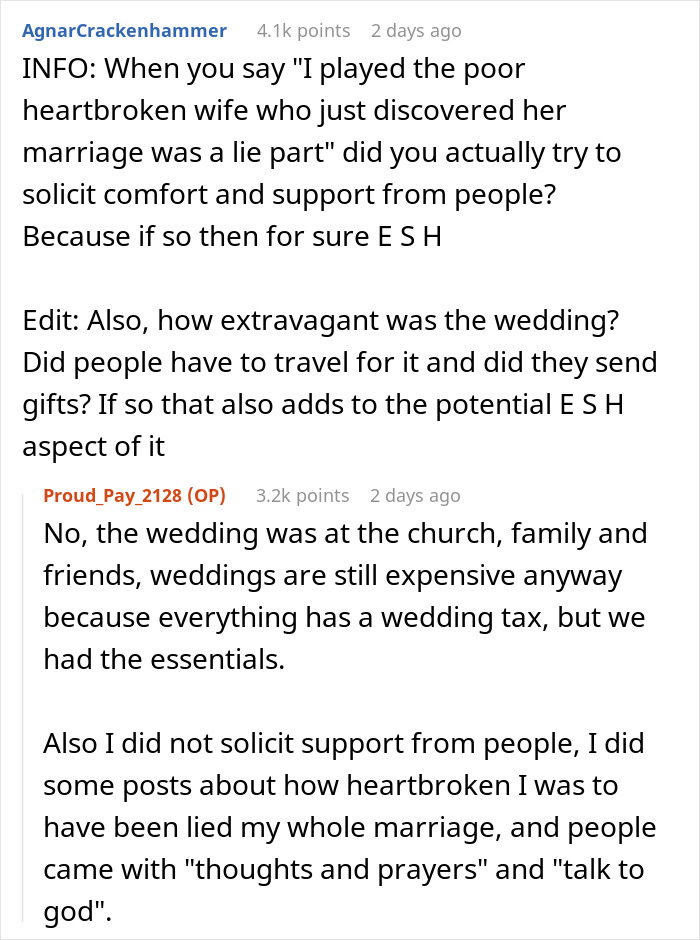
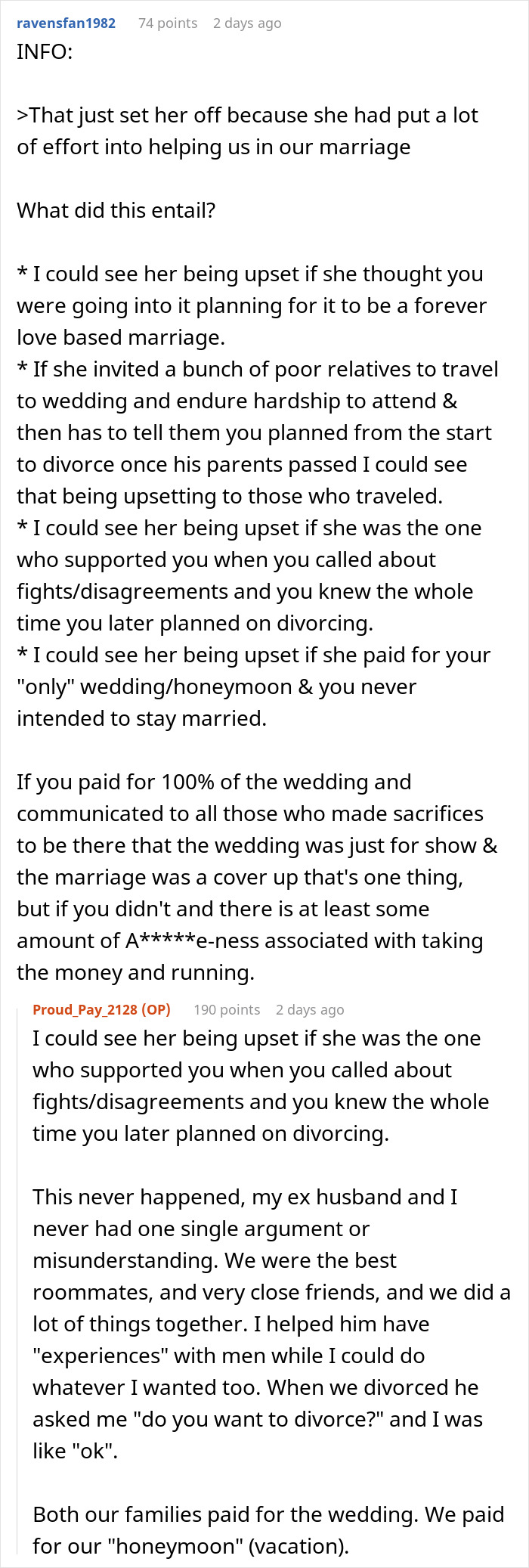

The readers were on the author’s side

